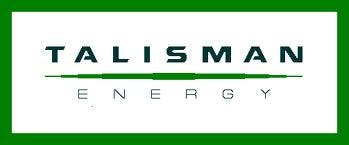Just a few years ago, Poland’s government had high hopes for exploiting the country’s potentially vast reserves of shale gas. Successful extraction of gas from these reserves could generate enough revenue to help the Eastern European nation reduce its government debt and perhaps even become an exporter of natural gas, they thought.
Fast-forward to today, and one can see why actually fostering a shale boom requires so much more than just large reserves of oil or gas in the ground. Let’s take a closer look at what went wrong and what the future may hold for energy companies interested in Polish shale gas.
Regulatory, tax, and other hurdles
Optimism about Poland’s gas potential was initially fueled by data from the U.S. Energy Information Administration, which estimated in 2011 that the country had potential reserves of 5.3 trillion cubic meters, which would make it the largest in Europe.

But regulatory hurdles and uncertainties surrounding future tax policies have tempered the initial optimism. Foreign companies operating in Poland are concerned that they may not be able to win concessions to recover meaningful amounts of gas, while others are discouraged by how long it takes to receive or modify drilling permits.
Many are also afraid that Polish lawmakers will cap taxes at more than the currently proposed plan of 40% of profit. They’re also concerned about a government proposal to create a controversial new energy mines operator, known as NOKE, to become a mandatory partner in Polish oil and gas ventures, which could stifle the profitability of their operations.
Companies backing out of Poland
In addition to the above-ground risks of regulatory, licensing, and taxation uncertainty, disappointing initial results from shale test wells have led some companies to rethink doing business in the country. Last month, Poland’s shale prospects were further dashed when Talisman Energy Inc. (USA) (NYSE:TLM) and Marathon Oil Corporation (NYSE:MRO) decided to pull out from their operations in the country.
Talisman Energy Inc. (USA) (NYSE:TLM)’s executive vice president, Paul Warwick, said the company will hand over its Polish concessions to its partner San Leon Energy, as it focuses on drilling in North America and Asia. Though its three test wells in Poland yielded encouraging results, Warwick said the company needs to do what is in the best interest of its shareholders.
Marathon Oil Corporation (NYSE:MRO) was less specific, summing up its decision in a few brief words. In a press release accompanying its first-quarter financial results, the company said: “After an extensive evaluation of the Company’s exploration activities in Poland and unsuccessful attempts to find commercial levels of hydrocarbons, Marathon Oil has elected to conclude operations in the country.”
Talisman Energy Inc. (USA) (NYSE:TLM)’s and Marathon Oil Corporation (NYSE:MRO)’s decision to retrench from their Polish operations comes not too long after ExxonMobil announced last year that it would stop exploring for natural gas in Poland after initial tests failed to yield commercial quantities of gas. Of the remaining energy majors, only Chevron Corporation (NYSE:CVX), ConocoPhillips (NYSE:COP) and Eni still have operations in Poland.
The future of Polish shale gas development
As you can see, having large reserves of shale oil or gas and creating the right environment for investment in those reserves are two very different things. If Poland is to attract the level of foreign investment necessary to develop its shale resources, it will need to foster a much more favorable business environment.
The article Poland: How Shale Gas Development Can Go Wrong originally appeared on Fool.com.
Fool contributor Arjun Sreekumar has no position in any stocks mentioned. The Motley Fool recommends Chevron and Ford and owns shares of Ford and General Electric.
Copyright © 1995 – 2013 The Motley Fool, LLC. All rights reserved. The Motley Fool has a disclosure policy.




